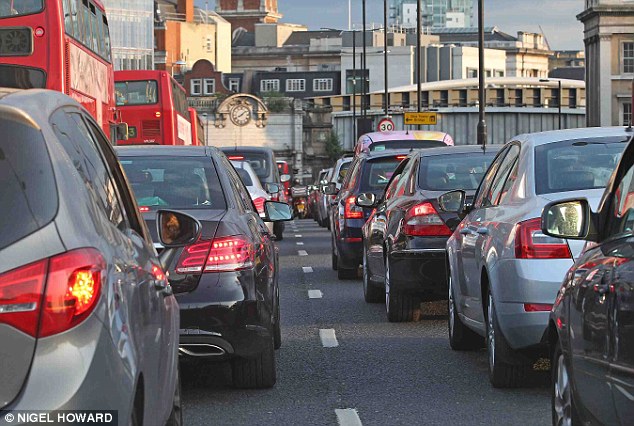11 Dec 2024

Tired Earth
By The Editorial Board

Two years ago the US Environmental Protection Agency issued a notice of violation to Volkswagen, setting off the far-reaching investigation and media storm into the VW diesel scandal. New research captures some of the real-world impact on lives lost due to air pollution associated with diesel cars.
In a new study published in the journal Environmental Research Letters, researchers showed that in 2013, air pollution by diesel cars, vans, and light commercial vehicles contributed to roughly 10,000 premature deaths in 28 European Union countries plus Norway and Switzerland. About half of these deaths could have been avoided if these vehicles met the pollution limits set by countries.
There are more than 100 millions diesel cars in Europe — twice as many as in the rest of the world. The shift from gasoline to diesel cars was a strategic choice for European countries and it was encouraged with tax incentives, since diesel engines emit less carbon dioxide — a heat-trapping greenhouse gas — than petrol engines. But diesel cars also emit lots more nitrogen oxides (NOx). When NOx are released into the air from motor vehicle exhaust, they produce tiny soot particles and ozone. Breathing in all this is linked to heart and lung diseases, which contribute to people dying prematurely.
Governments routinely test new diesel vehicles to check whether they meet pollution limits. The problem is that these tests fail to mimic real-life driving situations, and so they underestimate actual pollution levels. When driven on actual roads, diesel cars emit four to seven times more nitrogen oxide than in lab-based tests. In the case of car companies like Volkswagen, cars were intentionally sold with special software designed to defeat emissions testing. All these extra NOx has serious consequences.
“The excess NOx emissions is not just a matter of complying or not with some obsolete regulation, it has public health consequences,” says study co-author Jens Borken-Kleefeld, a senior research scholar at the Air Quality and Greenhouse Gases Program at the International Institute for Applied Systems Analysis.
Borken-Kleefeld and his colleagues analyzed NOx emissions and concentration of air pollutants in 28 EU countries plus Norway and Switzerland in 2013, and then looked at the populations exposed to all that smog. They found that roughly 10,000 premature deaths a year can be attributed to NOx emissions from diesel cars, vans, and light commercial vehicles. About half of those deaths are due to the excessive NOx emissions.
Italy, Germany, and France — the most populous European countries — were most impacted by the pollutants and faced the highest number of related deaths. But when the researchers looked at the number of premature deaths per 100,000 inhabitants, smaller countries like Switzerland, Slovenia, and Belgium popped up as well. “They live downstream in a way, and hence, they are affected by the pollution which they can’t control,” Borken-Kleefeld tells The Verge.
The researchers also found that if diesel cars emitted as little NOx as gasoline cars, about 7,500 premature deaths in 2013 could have been avoided, the study says. Borken-Kleefeld says that the original push for diesel cars in Europe is no longer valid. The introduction of more efficient gasoline engines and an influx of hybrid-powered cars means that gasoline cars now basically produce the same CO2 emissions as diesel cars, Borken-Kleefeld says.

“In Europe, we have seen that the original advantage in fuel economy of the diesel cars has been lost over the past decade or 15 years,” Borken-Kleefeld says. “The original argument that was given in Europe for why to favor diesel over gasoline has lost lots of its foundation. It should be reviewed.”
The study’s findings aren’t too surprising. A study earlier this year showed that the extra pollution from diesel cars as well as trucks, has contributed to about 38,000 premature deaths worldwide in 2015. Today’s study focuses only on Europe, and only on diesel cars. That’s because in Europe, there isn’t strong enough evidence that diesel trucks produce excessive NOx emissions, Borken-Kleefeld says. (That could be because heavy duty vehicles in the EU have much stricter regulations than cars.)
Still, it’s a reminder of the health consequences of the diesel vehicles people drive every day. In other words, we’re still trying to figure out how much damage dieselgate is doing.
Source : www.theverge.com
Comment